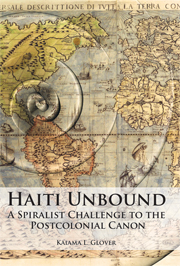Part I - Introduction: The Consequences of Ex-Centricity
Summary
Ordinarily, we look at insularity as a mode of isolation, a sort of spatial neurosis. In the Caribbean, however, each island is an opening. The Inside-Outside dialectic recalls the Earth-Sea confrontation. It is only for those anchored to the European continent that insularity equals imprisonment. The Antillean imaginary frees us from suffocation.
—Edouard GlissantIn considering the most prevalent voices that figure in critical discussion of postcolonial literary production in the French-speaking Americas, one cannot help but notice the overwhelming presence of works by writer-intellectuals from France's overseas department of Martinique. While this phenomenon might be explained, to a certain extent, by the simple fact of the island nation's incorporation into the French state and consequent visibility with respect to Euro-North American academics and publishers, I would argue that there is something more subtle at play here as well. Specifically, it would seem that there exists an important correlation between the fact of the physical journey to Paris embarked upon by Martinique's most prominent writers and the production of an explicit, self-defining theoretical perspective—a perspective that effectively generates the principal intellectual frame within which the works of these writers can be read. In other words, by providing explicit interpretive foundations for their literary production, certain Martinican writers have effectively demanded scholarly engagement with their work; they have situated themselves physically and discursively with respect to the metropolitan center, and so have opened the door to a transatlantic dialogue dedicated to the theorization of their own aesthetic creations.
- Type
- Chapter
- Information
- Haiti UnboundA Spiralist Challenge to the Postcolonial Canon, pp. 1 - 30Publisher: Liverpool University PressPrint publication year: 2010
- 1
- Cited by

